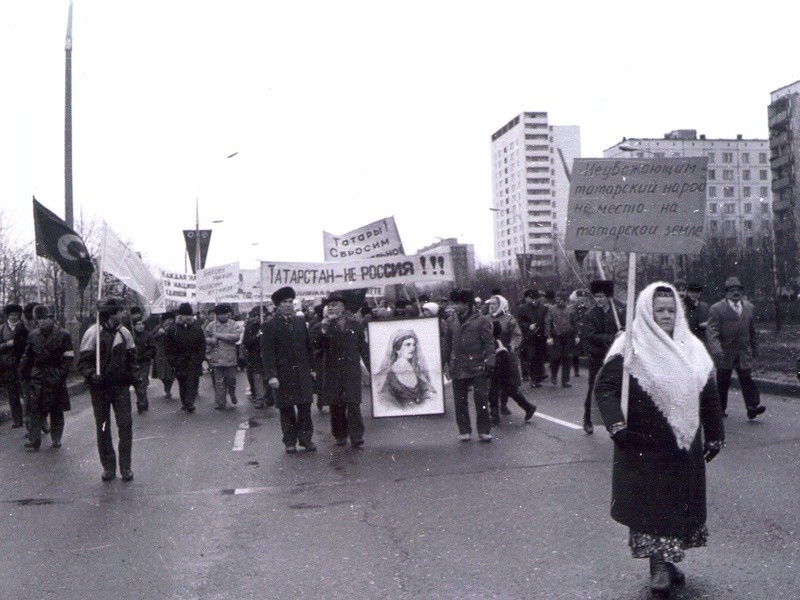“Everything I’m curious about must be in Tatar. Until it’s in Tatar, it’s not really mine.”
Dmitry Oparin and Aidar Shaikhin
Oct 18, 2023

This interview is part of a collaborative project between the Russia Program and Perito, an online media platform on culture and territories. Through a series of translated interviews and essays, we introduce Perito's content on Russia and Russia's minorities to English-speaking audiences.
Perito continues its new series with anthropologist Dmitriy Oparin, researcher from the Passages laboratory (Bordeaux Montaigne University) and co-creator of the podcast Tozhe Rossia (“Russia Too”). In our second piece, we’re talking about the Tatar language. Director of the House of Tatar Books, founder of the Giylem Project and Tatar language teacher Aidar Shaikhin spoke with us about the potential of receiving a higher education in Tatar, various struggles the language faces within the republic, and his Tatar-speaking world.

Dmitry Oparin: What are you doing currently?
Aidar Shaikhin: To some extent, I was and am currently involved in language activism, although I never called myself an activist. We have a Tatar-language scientific and educational project called Giylem (“Knowledge”), an analogue of Postnauka. We translated articles on topics in philosophy, physics, biology and other sciences, and wrote our own pieces. We published a print magazine every three months and we gave lectures. The project of translating Harry Potter into Tatar was born within Giylem. If we see something interesting at the global or federal level, we try to recreate it in the Tatar language. For our audience, it is normal that some things live in the Tatar-speaking space.
From 2015–2017, there was a boom and many small Tatar-language projects cropped up. I brought some here, to the museum, some were abandoned, but we are working on preserving and developing the language. Although we don't really like the word “conservation,” we do like the word “development.”
Why don’t you like the word “conservation?”
We've been engaged in conservation for 27 years, and we lose native speakers every year. We have a saying: “Conservation is preservation, and only tomatoes and cucumbers should be canned.” I want to believe that we’re not so under threat that we need to preserve the language. There is the hope that we’re in a relatively good position and need to focus on development, not preservation.
You say “we,” but to whom are you referring? Who is “we?”
Tatarstan. In Tatarstan, sometimes it seems like all everyone’s doing is preserving the language. Everyone wields their language like a sword. We have a lot of organizations and events dedicated to this: councils, commissions, ministries, institutes, forums, congresses, conventions. And the topic of Tatar language, culture, religion and family is constantly raised. But the result is not always visible, unfortunately.
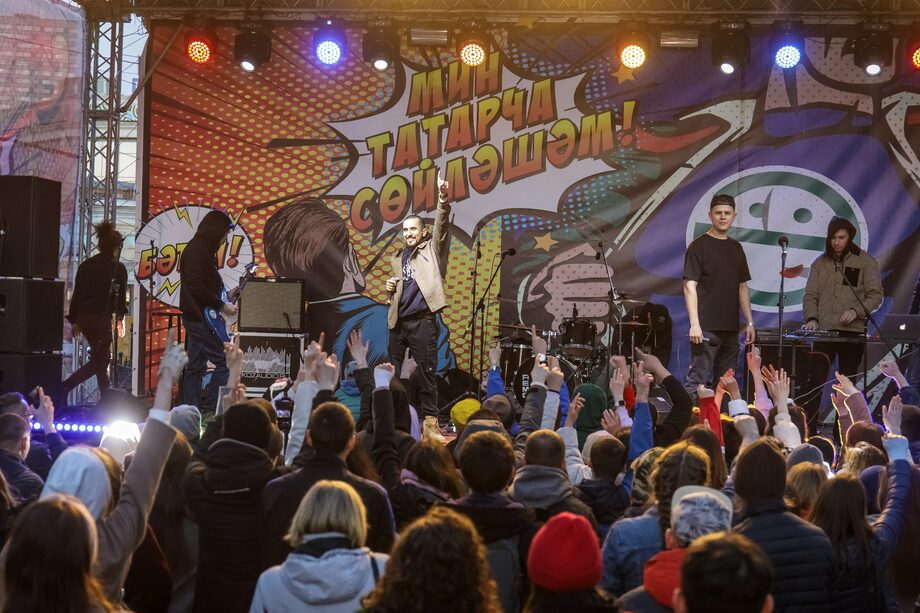
Why do you think it is important to translate Harry Potter into Tatar, and will this translation be popular among children and teenagers?
Translating Harry Potter is an opportunity to create interesting content for children in the Tatar language. We have already translated four books out of seven. We know teachers who have used the Tatar version of Harry Potter in their lessons. This arouses interest in language and interest in reading. Books are being published in the Tatar language, including children’s books, so it’s hard to complain, that’s all good, but children will still choose the books with the good cover art — they have a more exciting plot.
There was also the daring idea that the translation of Harry Potter into our language would cause Tatar authors to write a little differently. Ideally, we would have a situation where a child reads Harry Potter for the first time in the Tatar language.
In terms of translating world literature, we’re already late to the game and it’s practically too late to correct the problem. Almost no literature has been translated into Tatar over the past 20–30 years. I would like children to get acquainted with famous books in Tatar, like we once did, so that they develop a worldview and way of thinking in the Tatar language. I first read Chekhov in Tatar simply because I had the book at home — a Tatar translation of Chekhov. Or "Robinson Crusoe.” Once upon a time, we had a system that worked for us, world literature was perfectly translated into the Tatar language, and many became acquainted with it in Tatar. In Tatarstan, at least.
Tatar literature has always functioned alongside translations. Medieval Turkic literary culture was not particularly concerned with issues of copyright, so texts were easily translated and supplemented; there was a whole genre of imitative literature known as “nazira.” Tukay translated Pushkin and Lermontov. This has a positive effect on the overall state of literature.
But the lack of literature and content in Tatar language is felt; even children’s authors write in this Soviet style.
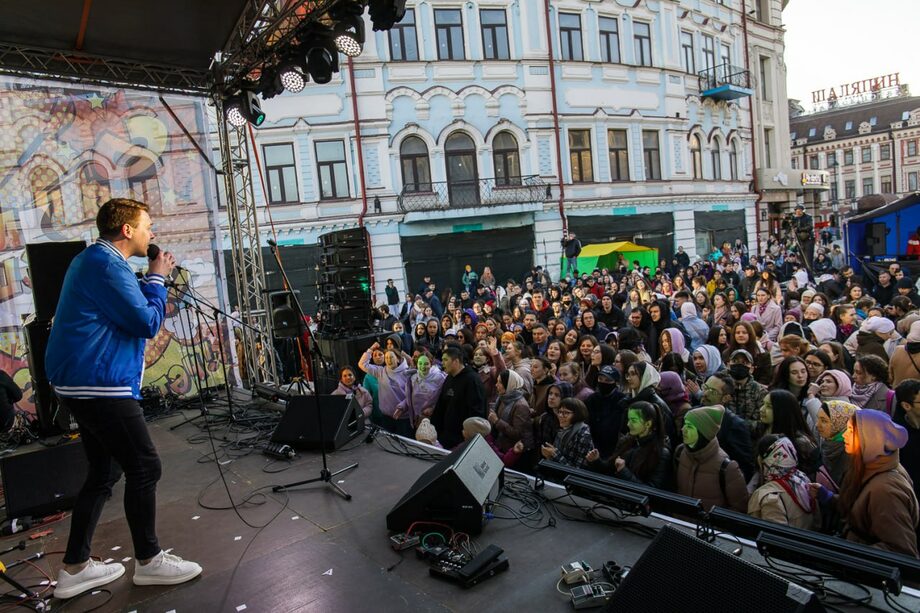
What exactly do you mean? That their language isn’t dynamic?
How should we write, for example, a nursery rhyme? We must take into account the processes that are taking place with the language — simplification in some places, Russification in others. It’s sad, but they are already underway. The authors write in a very literary style, which is not always accessible.
In this regard, the translation of Harry Potter, done by volunteers, can become an impetus for change. This is also a test for the language’s stability: how will Tatar cope, for example, with Rowling’s language? Or we also started translating Tolkien. It’s interesting how we can convey his style in the Tatar language. Our translations are unofficial, on a volunteer basis, but they are posted on the internet. The Kazan University Institute of Philology and Intercultural Communication wrote pieces on our translations.
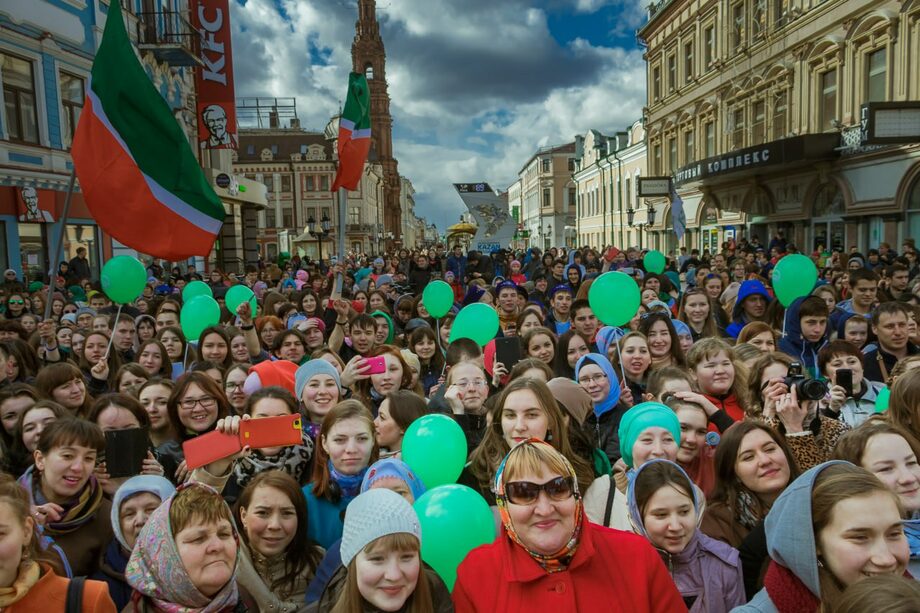
Do you plan to publish them?
At one time we did. The translators themselves cannot do it, and we couldn’t come to an agreement with the state publishing house. Now it is impossible to do this officially, because Russian publishing houses aren’t given the license to publish translations ever since the sanctions were imposed. That’s why our translations are posted on the internet; they’re volunteer efforts.
On the other hand, they’re accessible to everyone, which is good.
Yeah, yeah. We uploaded all the files so that they can be printed out with formatting. There are collectors who do not care at all whether a book is officially translated or unofficially translated. What’s important to them is having translations in minority languages in their home. About ten or so people from different countries have written, asking us to send them copies and to buy these versions from us.
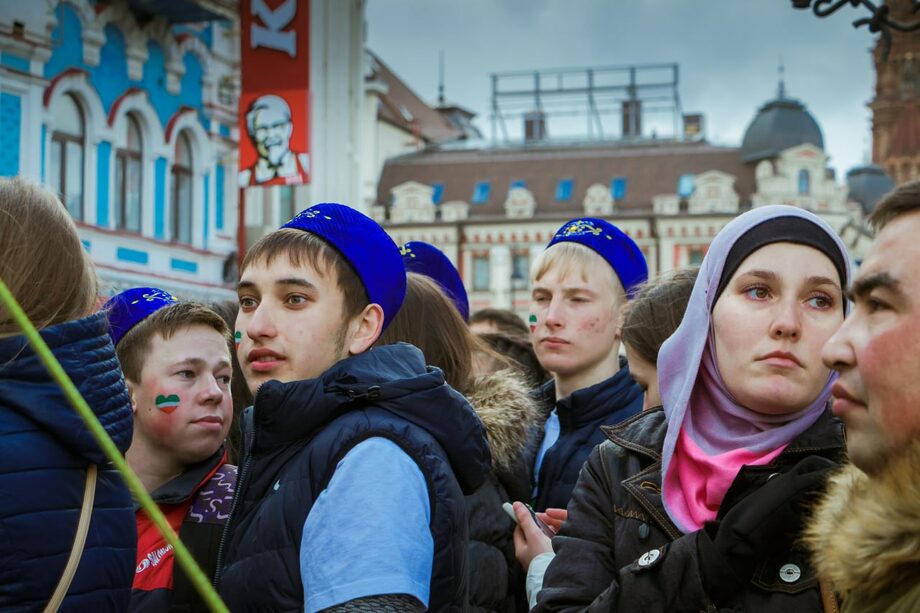
What is your linguistic background?
I was born in the Aktanysh District of Tatarstan. This is one of the most monoethnic regions of the republic, 98% of the population there are Tatar and the remaining 2% also know the language. In Aktanysh there is a humanities boarding school where children from different regions of Tatarstan and regions of Russia study.
I read Tatar literature as a child, so I spoke a more literary language than my relatives. Until the eighth grade, I studied all subjects in Tatar — including mathematics and physics. Sometimes we even studied Russian in Tatar. Our school was opened as a gymnasium where gifted children, the future Tatar intelligentsia, the new generation would study.
Is this gymnasium still in operation?
Yes, it’s still running. It has now become part of the Adymnar (“Steps”) program, which are Shaimiev’s multilingual schools, which opened in Kazan, Nizhnekamsk, Chelny, Almetyevsk and Elabuga. They provide instruction in Russian, Tatar and English.
Did the 2018 language amendment affect the state of the Tatar language in the republic? Am I correct in talking about 2018 as a milestone, or are we exaggerating its significance and state pressure on minority languages began earlier?
Yes, this was a definite milestone. Many complain that they don’t remember anything from their Tatar language lessons, but it was 11 years of schooling. Some of it sticks. A number of projects, cultural institutions, some newspapers, magazines were in demand, the teacher could refer the students to things they should read.
Now the Tatar language is studied by those who choose to study it. In an hour, I have my Tatar lesson for 6th graders. Only half of the class actually studies the language. We, literary scholars, have a forecast: the current generation of students who write stories, poems, and so on in Tatar is the last generation that we will be able to confidently call Tatar writers. Without Tatar language lessons at school and without teaching in the Tatar language, it is difficult to imagine the life of Tatar literature.
Only some urban and rural schools provide instruction in the Tatar language up to the 10th grade.
Are these the schools where all subjects are in Tatar?
Yes. Officially, there are a lot of them, but the majority only claim to give instruction in Tatar, but when preparing for exams, they still switch to Russian.
Is it still possible to take the Unified State Exam in Tatar?
It has never been possible to take tests in Tatar. The unified republic exam, the URE, was held in Tatarstan. Based on the results of the URE, you could get into universities under the republic’s jurisdiction, not federal ones. But now it only exists in Tatar. We have, for example, a Tatar philology major program at the Kazan Federal University, and the URE replaces the internal entrance exam. As a result, in 2023, nine people passed the URE in the Tatar language, and one in Tatar literature.
After 2018, new projects aimed at developing Tatar appeared. What are they?
We have a huge cadre of national professionals, people who went through the Tatar school system, who majored in Tatar philology. Many people wanted to protect the language. What did we get from it? Small media companies in the Tatar language, a network of public pages in the Tatar language about various subjects, including religious and educational projects.
The government of the republic also took their own countermeasures. They created a commission to preserve the language. Members of the commission studied the experiences of various universities, schools, kindergartens, and municipal districts. We continued to publish a series of Tatar textbooks called Sälam! for children who are learning it as a second language.
If you were in charge of the language policy in Tatarstan, how would you write it?
The Tatar language must be present within the educational space, at the higher grade levels. Parents refuse to have their children instructed in Tatar due to the fact that it is practically impossible to obtain a higher educational degree in the language.
I would also increase the amount of Tatar in public space — signs, advertising, city information —so that it’s tangible, something that visually accompanies people throughout their day. From this perspective, there is more Bashkir language in Ufa than there is Tatar in Kazan.
As someone working in the sphere of literature myself, I would focus on the translation and propagation of Tatar literature. We have streets named after Tatar writers everywhere and we don’t even know who they are.
It seems like the language and politics in Tatarstan are very closely connected. Where can this be seen?
In 2023, the clause stating that the head of the region must know the state languages of the republic was removed from the constitution of Tatarstan. Previously, there was one last argument as to why you would need Tatar — otherwise, you wouldn’t be able to become president. All sorts of people work in the office of the head of the republic, and not everyone there knows the Tatar language, and this is normal. But the most important discussions take place in a circle where they speak Tatar and swear in Tatar. The Tatar language is sometimes a ritual part of political processes. The President may switch to the Tatar at events.

I meant something a little different. I have the impression that in political protests in Tatarstan, issues of language often turn out to be key. It’s not economic problems, but language that becomes the impetus for the political action among the concerned population.
This is no longer the case. This has not been the case for a long time, in fact. There is a segment of the socio-political movement, remnants of the national movement of the 1990s – early 2000s, for whom this is a fundamental issue, who accuse the leadership of Tatarstan and Russia of oppressing the language. This is also seen among the youth, for example, when rapper Usal sings in the song “1552” that “they have ruined the language.”
But I wouldn't say that it is the key issue. If, for instance, there were attempts made to decrease state support for the Tatar language even more drastically, or to remove Tatar language from the constitution, for example, then of course there will be powerful waves of protests, there’s a danger of crossing the line. But the administration, the Rais of Tatarstan, and the government of Tatarstan are quite adept at avoiding such situations.
The core base that we had, the core of the national movement of the 1990s, hasn’t existed for a long time. There are forms of protest; almost everywhere around with signs and picketing. It is a ritual, so that people don’t forget there is a national movement. But in reality, this is not the main problem concerning the residents of Tatarstan.
We had a period when our higher education system was in the Tatar language, but now this is not the case. And so we think, “We should make this happen.” Within the GiylemProject, we limited ourselves to popularizing science. But the idea of Achyk University appeared at the World Forum of Tatar Youth and you can take Tatar language courses on their website.
It’s a selfish interest: everything I’m curious about must be in Tatar. Until it’s in Tatar, it’s not really mine. In Tatar, everything becomes a part of my world, because my world is Tatar-speaking. I think, speak, read, write in Tatar. My dreams are in Tatar.
We believe that some things, for example, foreign things, international things, should be handled directly, without using Russian as a pivot language. We translated Harry Potter from English, unlike in the Soviet period, when foreign literature was translated through Russian. The time when everything must be translated through Russian has come to an end.
We began translating old Tatar textbooks from the beginning of the 20th century, which use non-Russian terms, and sometimes even non-European terms, because they passed through the East. It’s not that our goal is to show the self-sufficiency of language, but it is important to convince ourselves and others that science is possible in our language. We have also worked on Wikipedia. In my world, the Pope speaks Tatar, and so does Harry Potter.
First I want to talk not about modern Tatar literature, but about the classics. I think that the average Russian of non-Tatar origin only knows about Gabdulla Tukay. How can we ensure that in the eyes of Russians, Tatar culture is not limited to folklore, costume, Islam, cooking, the historical figures of the Khans, Princess Syuyumbike?
Even in Kazan, few non-Tatars know that we have poets besides Tukay. We have a monument to Kul Gali. His poem Kyssa-i Yusuf (“The Tale of Yusuf”) is a bestseller in Tatar literature. Until a certain period, the authors of ancient literature were equally Tatar, Bashkir, Uzbek, and Kyrgyz—this is the period of common Turkic literature. Previously, these authors were studied in the Tatar literature school curriculum, including for Russian-speaking children.
The procedure for popularizing national writers was determined during the Soviet period. Tukay and Jalil were published in Russian. Kul Gali, the author of Kysa-i Yusuf, began to be promoted in the 1980s, when the anniversary of this work was celebrated under the UNESCO program. Ancient literature is not an everyday, casual read. This is high literature, which was created within the palaces and was addressed to the khans. New literature, the times of Tukay and Kamal, this was the Tatar Renaissance, when they began to write in language that the people could understand.
There was also a period when some of our texts were banned. A number of names were banned in the 1930s, although some works were promoted, for example the novel Honor by Bashirov, which was translated into Russian, the languages of the peoples of the USSR and the countries of the socialist bloc. And in 1944, study of the epic Idegei was prohibited.
Has this repressed literature experienced a rebirth?
Yes, it has been reborn. It is being published in Tatar, studied, and sometimes translated.
What about modern Tatar literature?
In the 1990s, topics that had been banned were brought back — national issues, historical novels. We are constantly publishing something. True, there are much fewer young prose authors than poets.
How close modern literature is to the reader is another question. Intrigues, scandals and investigations flare up every year when the Tukay Prize is awarded — who’s going to receive it, and for what. Usually the prize is given to writers of considerable age for works that they wrote 20 years ago, 30 years ago. Young applicants are pushed to the backburner.
Why do authors who write in Tatar choose to do so?
On Monday, when you wrote, I was at the theater. By the way, Tatar theater is developing rapidly. There was a literary evening by Rabit Batulla, who turned 75 years old. It ran an hour and a half and included an ode to the Tatar language, poets, writers, history, they read an excerpt from his novel about how the shakirds of Kul-Sharif defended Kazan during the conquest. The event was organized in the spirit of the 1990s. Rabit Batulla himself said that he is 33% unhappy, because his happiness consists of three elements: work, family and the freedom of the republic.
Tatar writers are not only writers, they are always politicians as well. Writing in the Tatar language means participating in the national process. But, in addition to their patriotism and worldviews, it seems more difficult to break into the Russian literary space than it is to break into the world of Tatar literature. We have only 300–400 writers.
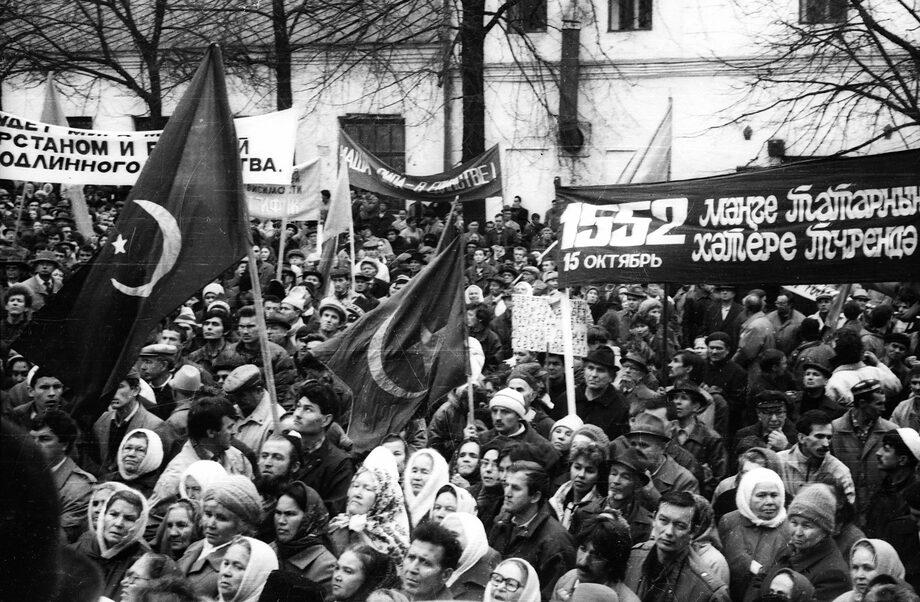
How is the attitude towards the Russian language changing among the Tatar intelligentsia? Any considerations about Russian being the language of oppression?
For the Tatar intelligentsia, the Russian language and the Russian world have always been foreign, different. There are still people who will get up and leave the hall if an event in a Tatar institution is held in Russian. This is the generation that adopted the constitution of Tatarstan in 1992, and it was almost completely dismantled. Why did they also stand up for the post of the President of Tatarstan? These are important symbols.
For intellectual youth, speaking Tatar is also a kind of protest: the rapper Usal, the rock band Gauga, the qaynar quartet, the band Hommage, the indie folk band Juna, the whole Yummy Music label.
There is another level of protest when some guys refuse to use the Cyrillic alphabet and use the Latin alphabet. There is also the radical option of abandoning the Latin alphabet and even the Arabic alphabet, instead calling for Tatars to use Turkic runes of the 6th–7th centuries. In the 1990s, there were even Tengri newspapers published. This is a wing of the national movement that calls for abandoning Islam, the East, and the West, and returning to our roots. I, for example, use the Latin alphabet, especially when I keep my personal notes.
Why?
I see it as something of my own. Sometimes it seems that some of my innermost thoughts in Tatar should not, must not be written using Cyrillic. Moreover, I know that the Latin alphabet appeared only in the 1920s. At our school we had textbooks in two scripts simultaneously — the text might begin with the Cyrillic alphabet and end with the Latin alphabet. At that time, the Latin alphabet was reintroduced and trial bilingual textbooks were published. This is part of my childhood, my fictional world, when everything was fine, we had the Latin alphabet, sovereignty.
I know that this ideal world has never existed. But many people dream of another Tatarstan.
